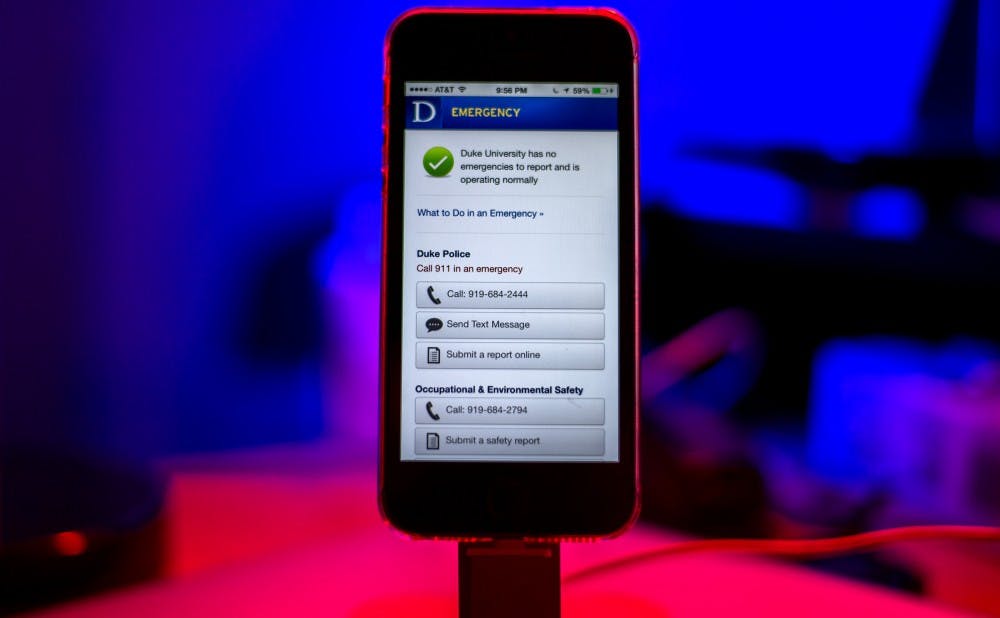Sending emergency text messages to 911 is a possibility for more Durham residents than ever before—with the city expanding its emergency texting service as Duke launches its own.
The Durham Emergency Communication Center announced last week that individuals using T-Mobile can directly text 911 for aid—joining those who use Verizon, AT&T and Sprint. The only city in North Carolina that allows emergency texting, Durham became one of the first cities in the country to offer the program when it launched in 2011. A similar service spread to campus this year, with Duke University Police Department officially introducing its own version of emergency texting in August.
“We always want the best technology for the citizens of Durham and [to] give them opportunities to report [crime]," said DECC Director Jim Soukup. "I’m glad we had the opportunity to be one of the leaders in the country to provide this service, and hopefully, everyone around us will start to get on board, as well."
Soukup emphasized the benefits of the system for individuals with disabilities such as hearing impairments, who may not be able to verbally communicate with emergency personnel. He added that sending a discreet text message may be the safest way to summon assistance in times of immediate danger.
The campus system allows individuals to access DUPD assistance through the “Emergency” section of the Duke Mobile application. Those without smartphones are also able to directly request assistance by texting the phrase "HelpMe" to the DUPD phone number 67283.
“It’s a good idea because we’re always on our phones, and we’re usually texting instead of actually talking on the phone," said freshman Gabriella Rivera. "It might make it easier for people to report crime."
The text messages are monitored 24 hours a day, 7 days a week at DUPD's dispatch center.
Although the service may seem the most convenient possibility, Soukup added that citizens should only text 911 if voice calling is not an option.
“Texting is there and it should be utilized under a very simple principle," he said. "Call us if you can, and text us if you can’t. A voice call is always the quickest way.”
Soukup said he views the system as a valuable resource when necessary but noted that the program has received fewer than a dozen text messages since its inception in August 2011.
The program has several limitations, including messaging rates, a 160-character limit and the inability of users to engage personally with emergency personnel.
The DECC plans to continue developing the program and hopes to include several new visual features in the future, Soukup said.
"If you could take a picture of a license plate or the person, we could then send it back out to the responders or police officers," Soukup said. "That would certainly make for more accuracy and help in apprehending criminals."
Get The Chronicle straight to your inbox
Signup for our weekly newsletter. Cancel at any time.

